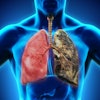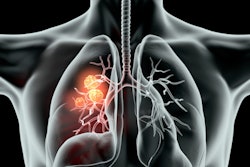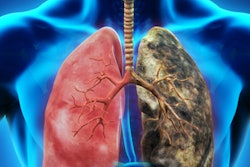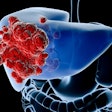The International Association for the Study of Lung Cancer (IASLC) is reporting promising results with its Early Lung Imaging Confederation (ELIC).
The ELIC project is intended to create a globally available database of thoracic CT images and clinical data to support the development of artificial intelligence (AI) to detect early lung cancer and related diseases and track how patients respond to treatment. In addition, ELIC could help implement low-dose CT screening through the distribution of validated software for the early detection of thoracic disease.
ELIC was tested in a four-month pilot that featured a central server, a hub, and 10 globally distributed servers that operate on the Amazon cloud. Each spoke server contained deidentified and publicly available CT images and was programmed to run one of two quantitative CT lung image measurement algorithms. The early success indicates the project's potential to conduct quantitative analysis on lung cancer imaging cases without the need to move datasets from their geographical location.
Research has shown that early detection with low-dose CT screening can decrease lung cancer mortality by 20% to 61% among high-risk populations. Currently, only 16% of lung cancer patients are diagnosed with stage I disease.
"The IASLC ELIC pilot project represents what global collaboration, cutting-edge science, and technological advancement can achieve," said Giorgio Scagliotti, president of the IASLC, in a release. "The initial results we're seeing from ELIC support our view that such a novel approach can assist in improving lung cancer screening and reversing the trend where lung cancer is overwhelmingly detected in a later and more deadly stage."



















